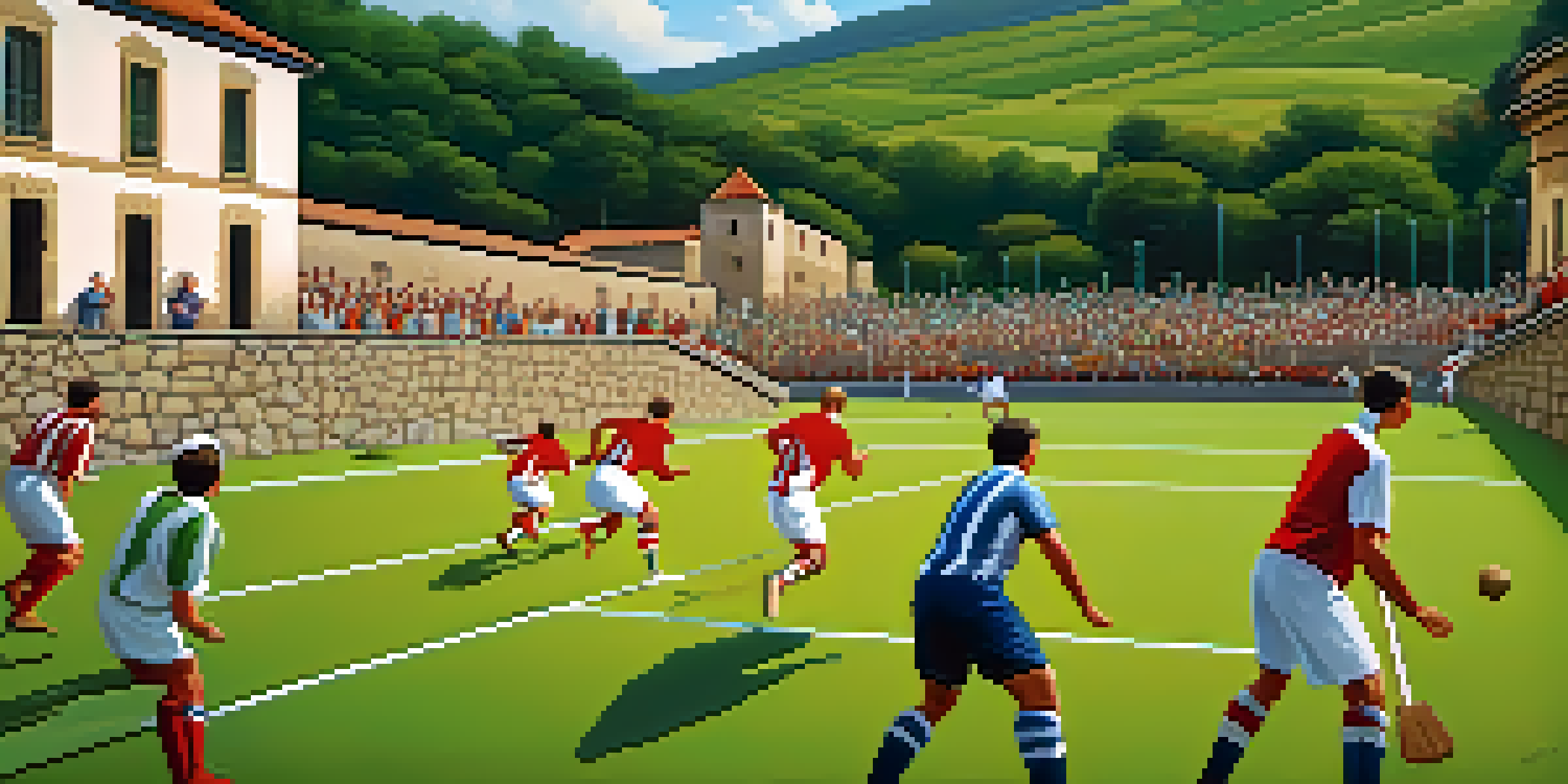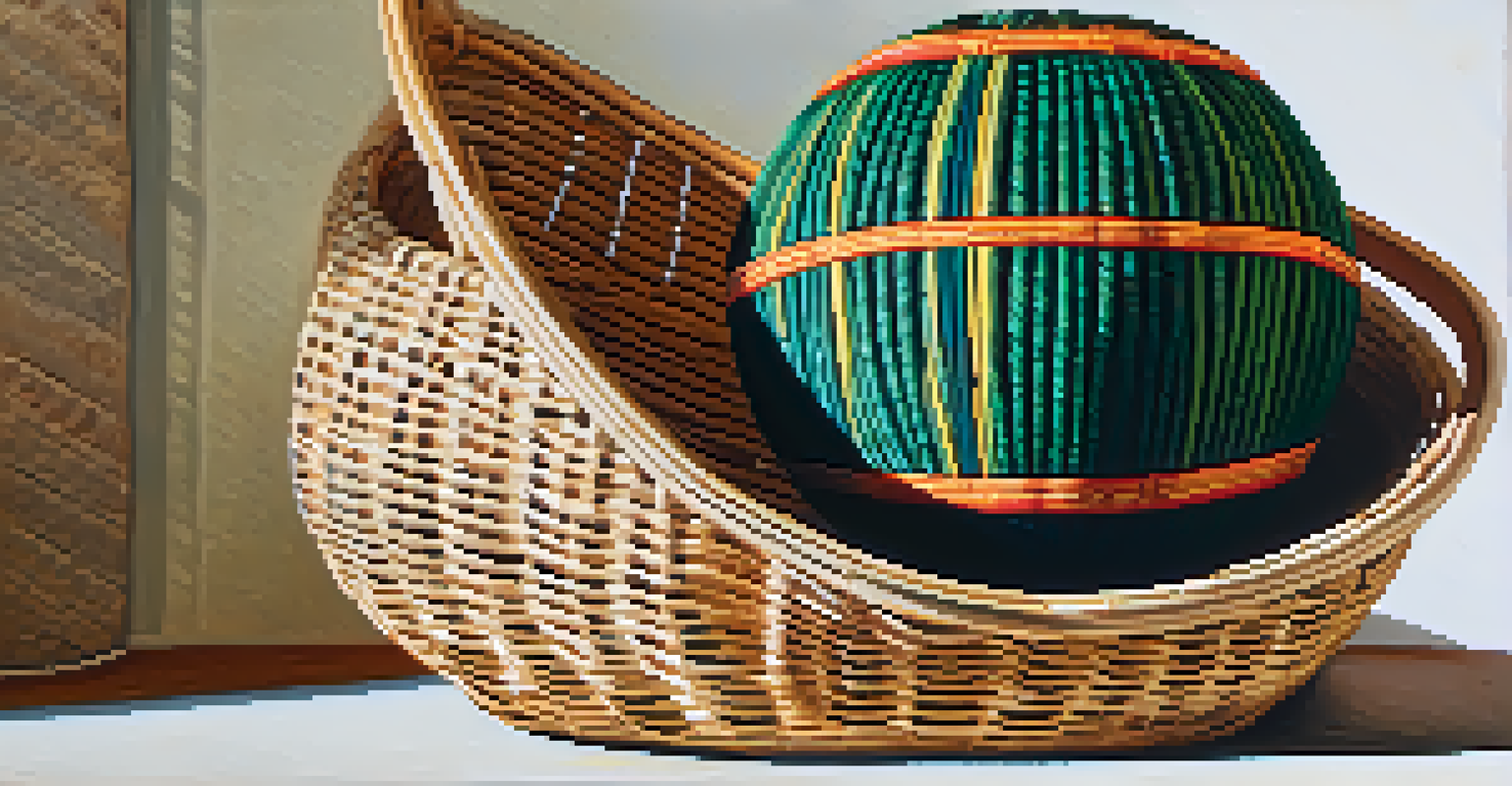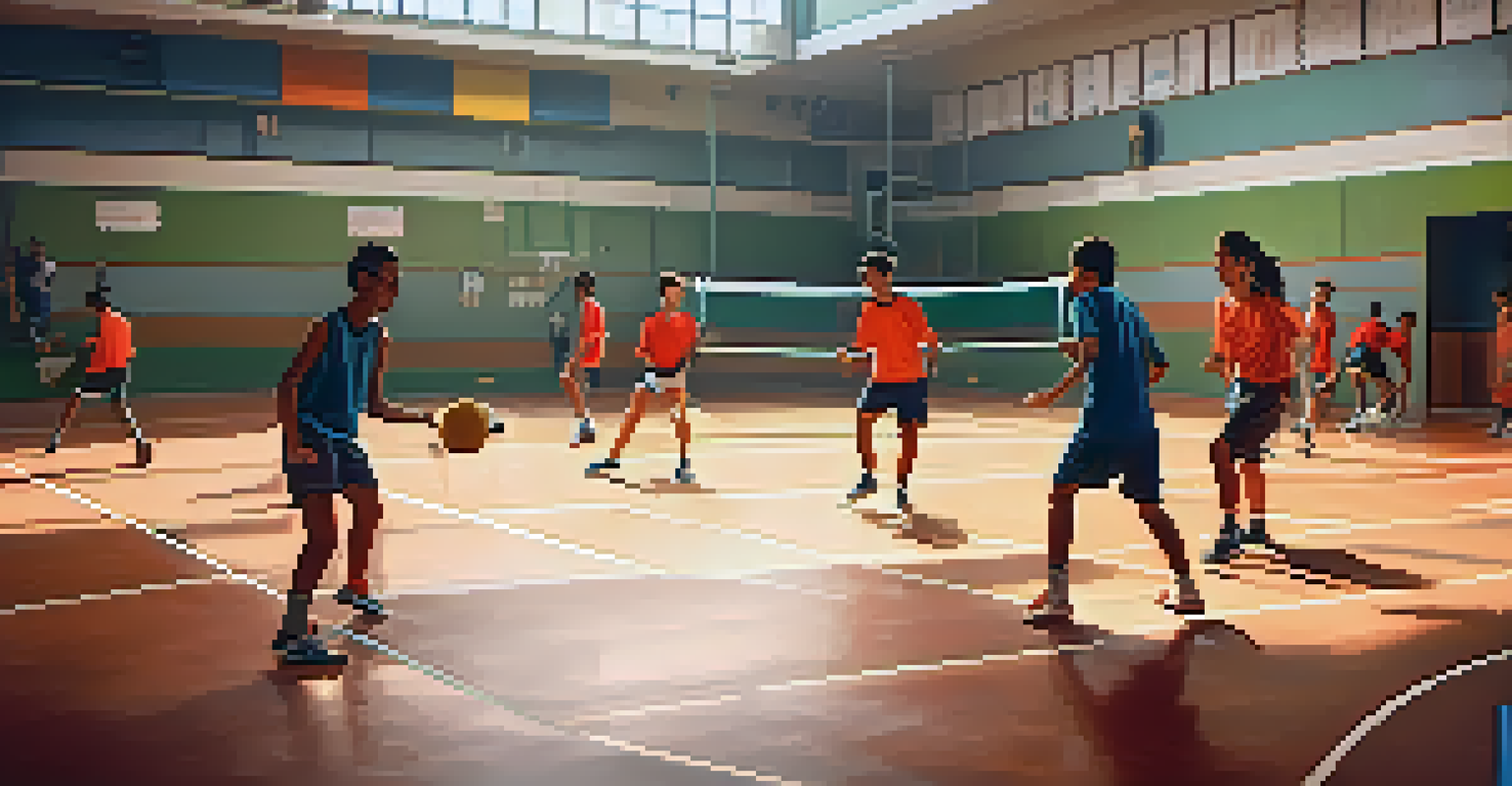Pelota: A Unique Game of Skill and Tradition in Spain

What is Pelota? An Overview of the Game
Pelota is a traditional Spanish sport that showcases incredible skill and agility. Often played in pairs or teams, the game involves hitting a ball against a wall using a variety of techniques, including hand, racket, or wooden bat. The objective is to score points by making the ball bounce in a way that the opposing team cannot return it.
Sports do not build character. They reveal it.
This game has deep cultural roots in Spain, particularly in the Basque Country, where it is not just a sport but a way of life. Families often pass down the love for Pelota through generations, making it an integral part of local communities. The rhythmic sound of the ball hitting the wall is a familiar melody in many towns.
With its diverse formats and rules, Pelota can be played in various settings, from local courts to grand stadiums. Each region in Spain has its own unique spin on the game, contributing to its rich tapestry of traditions and styles. This versatility ensures that Pelota remains relevant and exciting for players and spectators alike.
The History of Pelota: From Ancient Times to Today
Pelota's origins can be traced back to ancient times, with evidence suggesting that similar ball games were played by the Romans and Greeks. Over the centuries, the sport evolved and adapted, leading to the establishment of distinct regional versions. The Basque Country is often credited as the birthplace of modern Pelota, where it gained immense popularity in the 19th century.

As the game grew, so did its significance in Spanish culture. Pelota became a symbol of regional pride, with local clubs and tournaments sprouting up across the country. Notably, the sport has been embraced by various communities, reflecting the diverse cultural landscape of Spain.
Pelota: A Cultural Heritage
Pelota is deeply rooted in Spanish culture, especially in the Basque Country, where it serves as a symbol of community and tradition.
Today, Pelota is not only a beloved pastime but also a professional sport, with tournaments attracting players from around the globe. The game has maintained its traditional charm while adapting to modern audiences, ensuring that its rich history remains alive and well.
Different Variants of Pelota: A Closer Look
Pelota comes in several variants, each with its own unique set of rules and playing styles. The most recognized forms include Jai Alai, which is played with a curved basket called a 'cesta', and Hand-Pelota, where players use their bare hands to strike the ball. These variations provide a dynamic experience for players and spectators alike.
The only way to prove that you’re a good sport is to lose.
In addition to these, there are other formats like Frontón, which is played against a larger wall, and the indoor version, known as Pelota a Mano. Each variant not only brings different skills into play but also showcases the regional characteristics of the areas where they are played.
The diversity of Pelota means that there's something for everyone, whether you prefer the fast-paced action of Jai Alai or the strategic gameplay of Frontón. This variety keeps the sport fresh and exciting, drawing in new players and fans every year.
The Skills Required to Play Pelota
Playing Pelota requires a unique blend of physical and mental skills that can take years to master. Players must possess quick reflexes, hand-eye coordination, and agility to respond to the fast-paced nature of the game. Additionally, strategic thinking is essential, as players must anticipate their opponent's moves and react accordingly.
Training for Pelota often involves rigorous practice sessions, focusing on enhancing these skills through drills and gameplay. This dedication to honing one's abilities fosters a strong sense of discipline and perseverance among players. Many athletes find that the camaraderie developed during training sessions is just as rewarding as the game itself.
Diverse Variants of Pelota
The game has several exciting variants like Jai Alai and Hand-Pelota, each offering unique styles and challenges for players.
Moreover, the sport encourages a healthy lifestyle, as it promotes physical fitness and teamwork. Whether you’re a seasoned player or a beginner, the skills you develop while playing Pelota can translate to other areas of life, creating a well-rounded individual.
The Cultural Significance of Pelota in Spain
Pelota is more than just a sport in Spain; it represents a rich cultural heritage that connects communities. Festivals and local events often feature Pelota matches, bringing people together to celebrate traditions and showcase local talent. These gatherings create a vibrant atmosphere where the joy of the game is shared by all.
In many regions, Pelota serves as a source of local pride, with teams often representing their neighborhoods or villages. The fierce rivalry and support from fans can be palpable, making matches a lively spectacle. This connection to community fosters a sense of belonging and identity among players and spectators.
Furthermore, Pelota has gained international recognition, contributing to Spain's global cultural influence. The sport's unique characteristics and the passion surrounding it have captured the attention of audiences worldwide, promoting a greater appreciation for Spanish traditions.
How to Get Involved in Pelota
If you're interested in experiencing Pelota firsthand, there are many ways to get involved, regardless of your skill level. Local clubs and sports centers often offer classes or workshops for beginners, allowing newcomers to learn the basics of the game. These sessions provide a supportive environment where players can develop their skills while meeting fellow enthusiasts.
For those looking for a more competitive edge, many regions host amateur leagues and tournaments. Participating in these events can be a thrilling experience and a great way to immerse yourself in the sport's culture. Plus, you'll have the chance to showcase your skills and make lasting friendships along the way.
Skills for Success in Pelota
Mastering Pelota requires a combination of quick reflexes, strategic thinking, and physical fitness, making it a rewarding sport for players.
Additionally, attending live Pelota matches is a fantastic way to appreciate the sport's excitement and tradition. Whether you’re cheering for your local team or watching professionals in action, the energy and enthusiasm are infectious. This firsthand experience will deepen your understanding and appreciation of Pelota and its vibrant community.
The Future of Pelota: Challenges and Opportunities
As with many traditional sports, Pelota faces challenges in a rapidly changing world. The rise of digital entertainment and shifting interests among younger generations pose a threat to its popularity. However, there are opportunities to adapt and innovate, ensuring Pelota remains relevant in the modern age.
Efforts to promote the sport through social media and online platforms are already underway, helping to reach wider audiences. By showcasing thrilling matches and providing engaging content, Pelota can attract new fans and players who may not have been exposed to it otherwise. This digital push could breathe new life into the sport.

Moreover, collaboration with schools and community organizations can help reintroduce Pelota to younger audiences. By integrating the sport into physical education programs and local events, we can inspire the next generation to embrace this unique game of skill and tradition, ensuring its legacy continues for years to come.